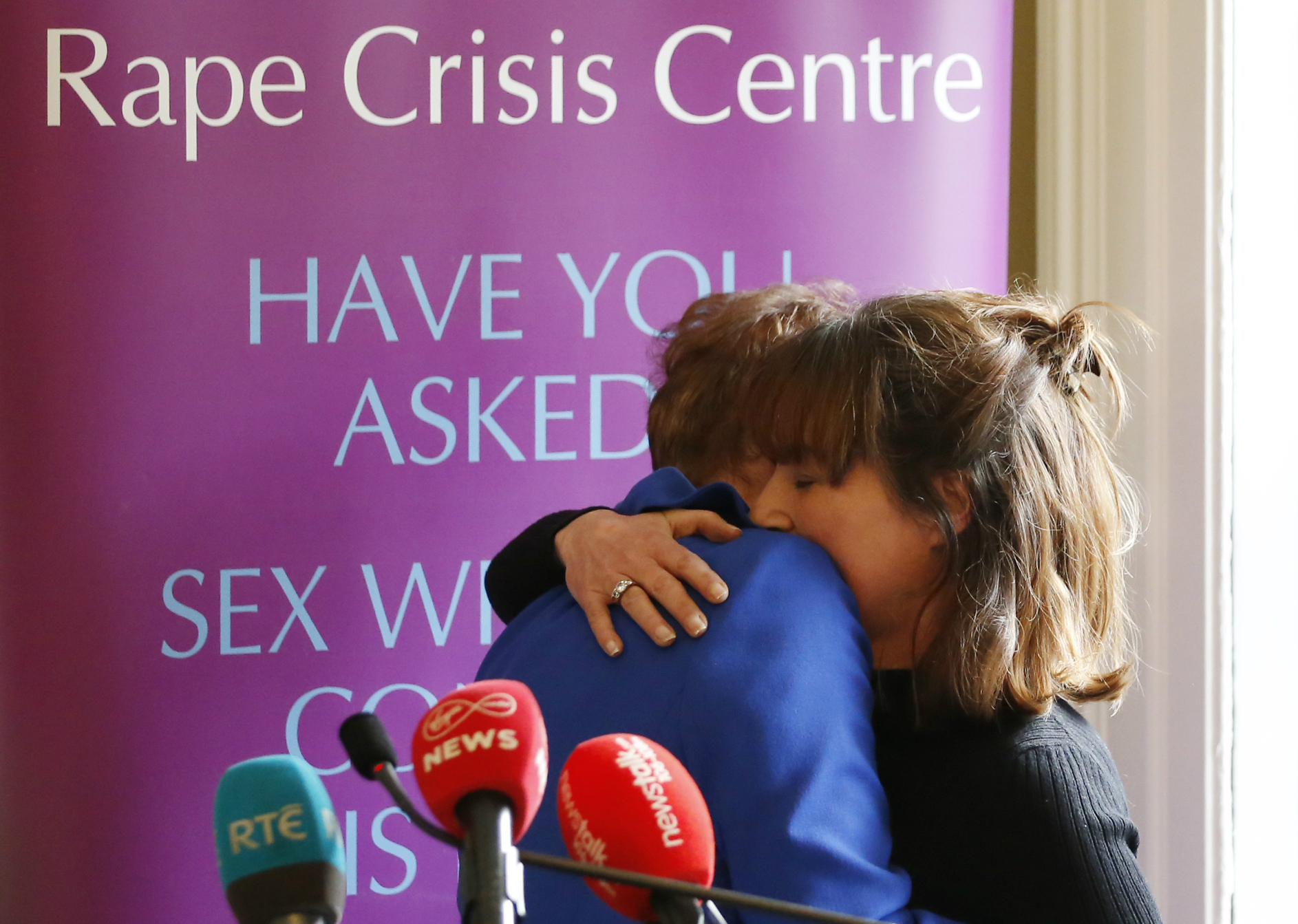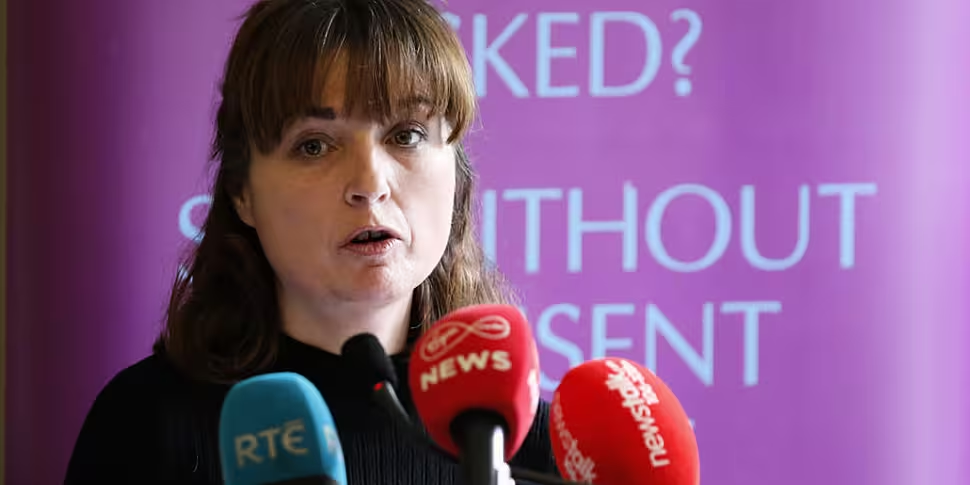The first Irish rape survivor to waive her anonymity says the Government is continuing to "sideline" victims.
Lavinia Kerwick was speaking at a conference on sexual violence to mark 40 years of the Dublin Rape Crisis Centre.
Ms Kerwick made history when she went public after her attacker was given a suspended sentence in 1991.
Speaking today, she said victims still feel sidelined.
She observed: "I can't keep coming out and speaking. I've done it now for over 25 years... I've never had support from a government or government minister.
"Now is the time... we're just asking for support - don't keep sidelining us.
"The money that you give could possibly save somebody's life, and I'd hate for anyone to have the life that I had."
 File photo of Dublin Rape Crisis Centre Noeline Blackwell and Rape survivor Lavinia Kerwick last year, 26-11-2018. Image: RollingNews
File photo of Dublin Rape Crisis Centre Noeline Blackwell and Rape survivor Lavinia Kerwick last year, 26-11-2018. Image: RollingNewsShe said very little has changed in the four decades since the Dublin Rape Crisis Centre was established.
“It was set up so that women could where they want and dress how they want and it still hasn’t come,” she said.
“It needs to change. I can tell you now that I haven’t worn a dress or a skirt since.
“We should be able to wear whatever we want. Rape is not even about clothes. It does not matter what you are wearing. It doesn’t matter what you’re drinking; it doesn’t matter waht you look like.”
Dublin Rape Crisis Centre
Some of the Dublin Rape Crisis Centre's clients are being placed on 10-month waiting lists.
TD Ruth Coppinger yesterday compared the funding of €25 million for services for victims with the €17 million the greyhound industry receives.
Speaking at today's event, Ann Marie Gill - chairperson of the Dublin Rape Crisis Centre - said: "That statement speaks for itself - that the dogs are treated better than the victims of sexual violence. It's a disgrace."
40 years ago the centre had around 70 calls, while last year it handled 14,000 contacts.
Here at the Royal College Of Surgeons for the 40th anniversary conference of the Dublin Rape Crisis Centre @DublinRCC pic.twitter.com/aNXq176TD2
— Shane Beatty (@ShaneBeattyNews) November 7, 2019
Former Tánaiste Eamon Gilmore is the EU's special representative for human rights, and he suggests politicians have a role in rape culture.
He argued: "When you hear prominent political leaders speaking in very vulgar terms and then dismissing it as some sort of 'locker room banter'... that feeds the culture".









